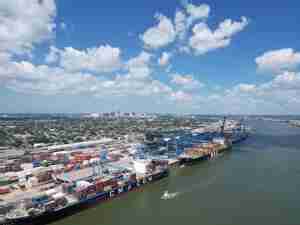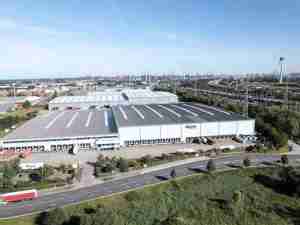Container volume through the Port of Charleston rose 8.3 percent in the fiscal year that ended June 30, with 1.38 million 20-foot equivalent units (TEUs) handled.
South Carolina’s non-container cargo segment increased 32.3 percent, demonstrating success in steps to diversify the state’s port business. Breakbulk tons in Charleston and Georgetown totaled 991,705 tons for the year, with growth in vehicles, project cargo, heavy lift, bulk and traditional breakbulk cargoes.
“These results show the confidence our customers place in the Ports of Charleston and Georgetown, and it means jobs at a time we could really use them,” said Jim Newsome, president & CEO of the South Carolina Ports Authority (SCPA).
At a regular monthly Board meeting, Newsome highlighted other strategic accomplishments for the year, including:
- Extended South Carolina’s overweight permit limit to 100,000 pounds gross vehicle weight for all shipping containers.
- Expanded on-site and off-terminal trans-loading capabilities for export products to serve China and other major world markets.
- Completed a $22-million capital project to transform Columbus Street Terminal into a premier rolling stock, breakbulk and project cargo terminal.
- Consolidated container operations and harmonized gate operations under one simplified structure, increasing efficiency.
- Furthered design of a new cruise terminal to open in 2013.
- Advanced the next-generation Charleston Harbor Deepening project.
The accelerated deployment of container ships too big for the Panama Canal, including four a week already in Charleston, underscores the national need for a true post-Panamax harbor in the Southeast region.
In July, Charleston hosted its first 9,200-TEU ship and routinely handles large ships actually drafting up to 48 feet.
“Charleston’s deep water capability, combined with our capable facilities, talented people and aggressive capital program, will continue to drive growth and investment in this state and across the region,” said Newsome.









